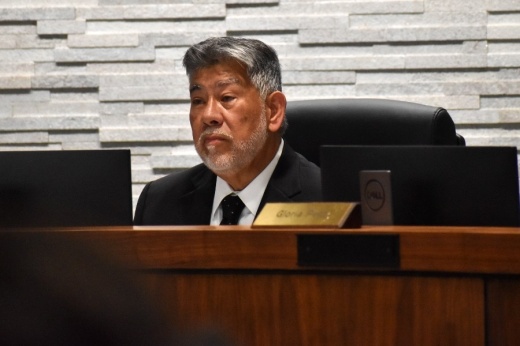The changes that were formally approved in the meeting were voted on during a July 22 special meeting, where the board passed:
- Reappraisal every two years instead of every year
- Freeze residential property values for tax year 2024-25 at current property values, except for new construction
- Sets appraisal caps or thresholds of 5% on properties, absent clear and convincing evidence or other possible limitations
In a nutshell
The seven-plus hour meeting featured comments from administrators and school board members from eight of the 20 ISDs located in Tarrant County.
One of the school districts that could be hurt by the changes is Carroll ISD, according to Chief Appraiser Joe Don Bobbitt.
He said that early data from the appraisal ratio for Carroll ISD indicates that the market value is about 10% higher than TAD values. He said if the Texas Comptroller of Public Accounts determines TAD is 10% or more below market value, the valuation school districts could lose funding.
Bobbitt said other school districts are in the 5-7% range. He said that schools in the 5-10% range would receive a two-year grace period from the comptroller to fix values.
“They are in peril right now before we even take action,” said Tax Assessor-Collector Wendy Burgess of Carroll ISD.
Board Member Gloria Pena motioned to approve the reappraisal plan without the freeze to give schools more time to figure out the impact of the change, but it failed, 4-2. Pena is a former Arlington ISD trustee and said in the last five years, school districts had to fund 27 unfunded mandates by the state.
“People are literally getting taxed out of their homes, and without taxpayers, you don’t have a school district,” Board Member and former Colleyville Council Member Callie Rigney said. “So, we have to look out for the taxpayers.”
A closer look
Fort Worth, Mansfield, Eagle Mountain-Saginaw, Hurst-Euless-Bedford, Northwest, Castleberry, Crowley and White Settlement all had representatives speak during the meeting.
Northwest ISD Board President Steve Sprowls was one of three to speak and represent the district based in Justin. He said 78% of the district funding of maintenance and operations, or M&O, is the fund that pays teachers, which comes from tax revenue. He said in 2019, NISD used 60% of tax revenues to fund M&O.
“The state is putting the burden on local homeowners more and more,” he said. “As the years go on, they’re giving us less. So, that’s an issue.”
Jonathan Pastusek, Northwest ISD Chief Financial Officer, said the district could lose up to $10 million with the changes in the reappraisal.
“Helping the taxpayers will hurt school districts,” he said.
Northwest ISD Superintendent Mark Foust echoed the impact the change could have. He said NISD is operating with a $16 million deficit for the fiscal year 2024-25 and further cuts could lead to the district eliminating programs or teaching positions.
Foust asked the TAD board to add an automatic trigger for reappraisal for ISDs if market values are in the 10% range, which could cut funding.
“The unintended consequences, some of which have been mentioned, not all, are significant, severe and will impact the hundreds of thousands of school-aged children who go to schools in Tarrant County,” Foust said. “Please press pause. Visit with us more and let's talk about unintended consequences. So that you all have a full picture of the decision that you're considering by alternating appraisal years.”
What else?
Keller ISD, Carroll ISD and Grapevine-Colleyville ISD are school districts that pay money back into the state due to recapture. Also known as Robin Hood, recapture removes local property tax dollars from public school districts to help balance the rest of the state budget, according to Recapture Texas.
Pastusek said NISD voters have passed nearly $3 billion in bonds since 2019. Bonds are structured to assume growth in the district in terms of residents and money paid in taxes.
GCISD voters passed a $150 million bond in May for technology updates, buses, safety and facility updates, which all fall under interest and sinking, or I&S.
“Where these changes could impact us is on the debt side,” GCISD Chief Financial Officer Derick Sibley said in an email. “In terms of a specific dollar amount, the true impact of these property value changes won’t be known until the 2025 tax year. However, GCISD is moving forward with a conservative property value growth in order to maintain a consistent interest and sinking tax rate as much as possible.”





